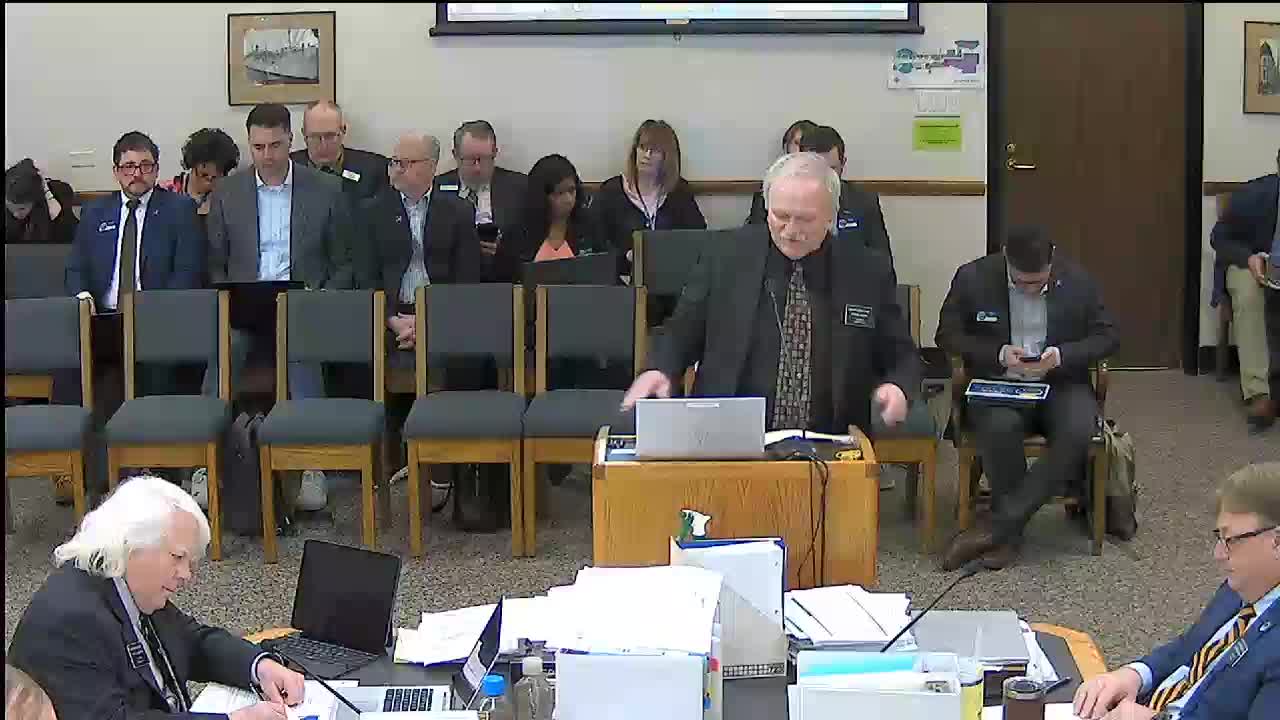North Dakota lawmakers outline two competing property-tax relief plans; committee schedules further work
Get AI-powered insights, summaries, and transcripts
Subscribe
Summary
Representative Robin Wise and Representative Louser presented competing property‑tax relief measures proposing across‑the‑board reductions in assessment factors and a 3% cap on assessed‑value growth; no final committee vote was taken.
Representative Robin Wise (District 14) and Representative Louser presented competing property-tax relief proposals to the House Appropriations Committee on Friday, proposing across-the-board reductions in the factors used to calculate taxable valuation and a 3% cap on annual assessed-value growth.
The main provision of House Bill 15‑75, presented by Representative Robin Wise, would lower the residential assessment factor from 9% to 6.25% and reduce the agricultural and commercial factors from 10% to 8.5%, a cut Wise described as “simple” and “fair.” Wise said that change would produce roughly a 30% decrease for residential taxpayers and a roughly 15% decrease for agricultural and commercial property owners and that the bill would use legacy-fund dollars for the relief.
Committee members were shown technical details for how relief would be implemented. Wise said counties would calculate new taxable valuations, send the totals to the tax department, and receive refunds without an application process. He also described a 3% cap on the portion of local budgets funded by property tax, and said political subdivisions that need additional levy authority could ask voters in a scheduled statewide election for up to six years of increased levy authority.
Representative Louser presented a related but larger buyout proposal that had moved through Finance and Tax in a different form. Louser described an amendment that would provide a 10‑mill buydown of K‑12 mills statewide, which he said would cost about $120,000,000: “the cost for one mill across the board for all property types is 12,000,000. So this is a 10‑mill buydown … it'd be a hundred and 20,000,000.” Louser said an earlier version sought a 30‑mill buydown and that the 10‑mill option was the version currently being discussed in committee. Louser’s proposal included the same 3% cap on growth and allowed local governments to seek additional levy authority by voter approval; in Louser’s version the carry-forward and the period for voter-requested levy carryover differ slightly from the other proposal.
Committee members clarified several technical points. Representative Wagner confirmed that going to the voters to exceed levy caps would occur at a regular statewide election and that a simple majority would decide the question. Chairman Bigasaw confirmed centrally assessed property (described in the hearing as “centrally assessed”) was excluded from the proposed reductions and would remain at 10% under the presented language.
No formal committee vote was taken on either House Bill 15‑75 or Louser’s amendment during the hearing. Committee members agreed to hold a fuller discussion later in the day along with two budget bills before returning to the remaining policy bills in the coming days.
Why it matters: Both proposals would reduce property-tax revenue used by cities, counties and school districts and rely on one-time state dollars, shifting near‑term costs into the state budget. The 3% cap on taxable-value growth would change the long-term revenue certainty local governments use for planning and bonding, and the carry-forward and voter-approval mechanics would shape how local officials respond to revenue shortfalls.
What’s next: Committee members said they would take up all three tax proposals later the same day and work to reconcile funding language and election timing before possible floor action.
